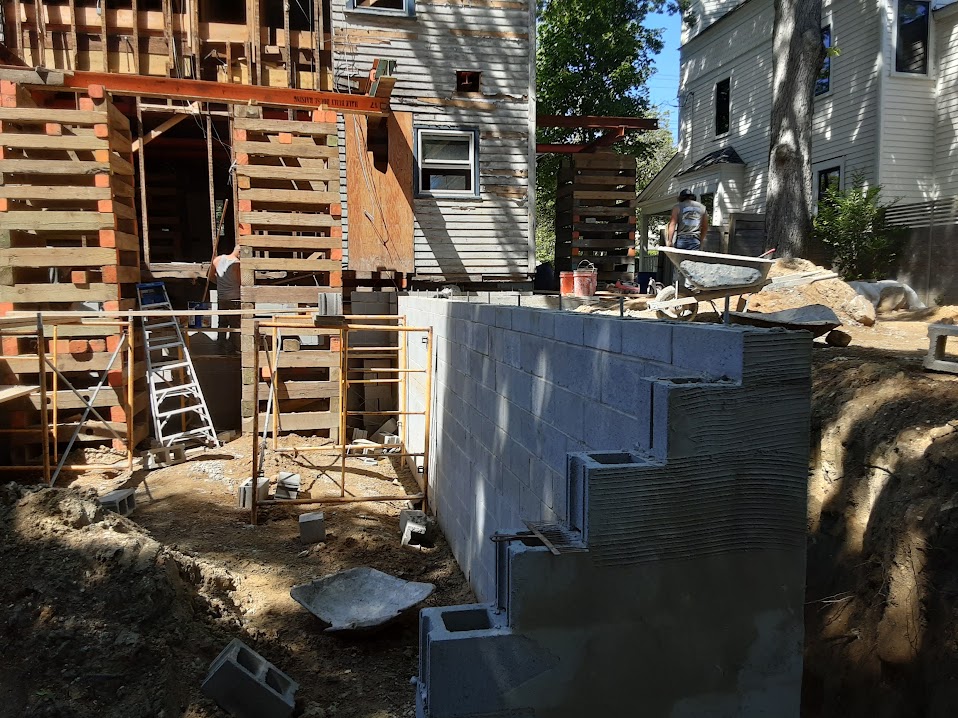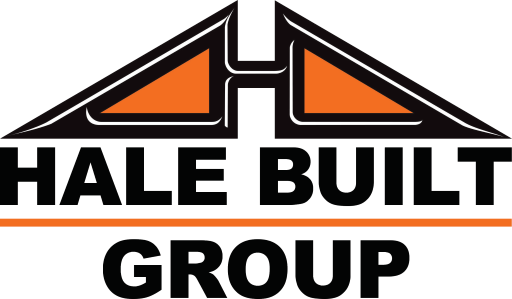
Masonry is the art of creating structures from individual bricks or stones, which is one of the oldest, most difficult, and most durable forms of construction. We have used bricks and stones for centuries to build both utility & decorative architecture, homes, cities, roads, and other structures.
From brick pointing and surface-level touch-ups to chimney construction and house raising, masonry is a skilled trade that requires a high degree of training and experience to produce superior results.
On the surface level of masonry, it may seem simple to use mortar to bind bricks or stones together. Though there is currently a shortage of skilled bricklayers and masonry contractors that have endured the years of practice needed for perfection.
Knowledge of structure & construction codes, a sharp mathematical ability, a keen eye for design, a trained muscle memory, and more are required to consistently produce quality results. Masonry is a time-consuming procedure, but the end results are well worth it. With skilled contractors, a well-constructed masonry building will last for many generations.
Have trouble with pests? Our rat slabs are top quality and sure to keep all rodents and pests out of your foundation's nooks & crannies. Installing or encapsulating a crawl space? Once Hale Built completes a basement or crawl space project, it'll stay clean and dry for years to come, ensuring that your home is free of mold and mildew. Installing a new garage or looking to repair your current one?
Our Garages are sturdy and built to last a lifetime. We also offer a variety of block foundation options to choose from. For example, we offer monolithic concrete foundation installs. This is a continuous concrete pour that creates a single, large slab. This method is especially useful for basements with living quarters.
Here are several of the premier job types listed that our company offers:
For masonry services, Hale Built is the name you can trust! Contact us today for an estimate.
The masonry trade has many forms, ranging from house raising and protection to general labor to specialist niche building on the extremely detailed level.
Here are some examples and types one may consider when looking into using masonry in a construction or repair project:
By far the most common kind of used masonry, bricks, usually made from materials such as clay, lime, sand, and concrete, provide a variety of styles ranging from old-fashioned to modern aesthetics. We can arrange them in multiple bond styles, including the Stretcher, English, Flemish, Header, & Rat Trap bonds.
Because of its simplicity, less-experienced personnel can complete its installation. Only for specific designs or at the start of unique builds would a tenured specialist be required to be present.
Like bricks, stone blocks come in a wide variety of shapes and sizes. They are less uniform than bricks, however, as each one is cut from natural stone. This makes for a more rustic look providing a certain "old-world charm" to any building or home.
Because of their irregularity, stone blocks require the expert eye of a trained mason to properly install. They are more difficult to work with and require special skills to lay correctly. This results in stone block masonry usually being more expensive than brickwork.
Concrete blocks are masonry that are found in all sorts of New Jersey commercial, residential, municipal, and industrial projects. Although brick and stone need to be held together, concrete blocks do not require mortar to be erected. We link them using a method of tabs and slots rather than being bonded with mortar.
We especially use concrete blocks for sloped, wet, or other difficult-to construct surfaces. The spectrum of uses for concrete blocks is highly flexible and may be utilized in a wide range of applications, including foundations, walls, and even pavements.
As a result, concrete blocks are an essential component of the masonry trade.
Veneer masonry is a type of construction that uses concrete blocks or bricks to build an outer layer on a frame. Unlike traditional masonry, veneer masonry does not require a solid foundation and is installed directly on top of an existing structure. This makes it an ideal choice for retrofitting or repairing old buildings. Veneer masonry is also less labor-intensive than traditional masonry and is completed in a fraction of the time.
As a result, it is often the preferred method for construction projects that are on a tight timeline. While veneer masonry offers many advantages, there are some disadvantages to consider as well. One downside is that veneer masonry is not as durable as traditional masonry; over time, it can crack and crumble.
However, veneer masonry is not always compatible with all construction materials. For these reasons, it is important to consult with a qualified contractor before choosing veneer masonry for your next project.
The Block Foundation method is a popular choice for construction projects because of its durability and flexibility. This method involves the installation of concrete blocks that are then filled with concrete. The blocks are arranged in a grid pattern, and they can then be poured or pre-cast.
Block foundations are extremely durable, and we can use them in a variety of different applications. One advantage of this type of foundation is that it does not require a lot of time or human resources to install.
Additionally, block foundations are very versatile and can be adapted to nearly any type of building. Another benefit is that they are relatively easy to repair if they become damaged.
There are several quirks that homeowners should be aware of when using this method. First off, the installation process requires careful planning and precision in order to achieve the desired results. Second, block foundation walls are not load-bearing, so they require additional support in order to remain stable.
Finally, block foundation walls are not waterproof, so they must be properly sealed in order to prevent moisture damage. Despite these quirks, the block foundation method is a versatile and reliable option for many construction projects.
The monolithic slab is a construction method that is most commonly used in the building of foundations, floors, and sidewalks. The key characteristic of this method is that the concrete is poured all at once, in one continuous pour. This pour requires the use of forms, which are typically made from wood or metal. Once the concrete has been poured and has had time to set, the forms can be removed.
One advantage of the monolithic slab method is that it is less labor-intensive than other construction methods. This is because there is no need to lay each brick or block individually. This method can make a seamless foundation or floor, which can be important for aesthetic reasons.
However, there are also some disadvantages to using the monolithic slab method. For example, this method requires a large amount of concrete, which can increase costs.
The pour is executed all at once, so any mistakes made during the process cannot be easily corrected. Overall, the monolithic slab method has its advantages and disadvantages but seems to remain a popular choice for many construction projects.
The rat slab is a type of foundation that is commonly used in the construction of houses and other buildings. This method involves the pouring of concrete into a mold that has been created specifically for this purpose.
We typically make the mold from wood or metal, and it creates a rodent-proof barrier around the perimeter of the foundation. This is a common installment used in house-raising for homes that consistently have vermin issues.
The garage is an important asset to the home. It provides a safe place to store the family car and other vehicles. In addition, you can use it as a workshop for hobbies or as extra storage space for seasonal items. Garage installation is a masonry job that involves creating a garage from scratch or renovating an existing garage.
The first step is to create a foundation, which is done by pouring concrete into a mold or by using pre-cast concrete blocks. Once the foundation is in place, we can build the walls using brick, stone, or concrete blocks. The roof of the garage is composed of metal, but we can also make it out of asphalt shingles or clay tiles. Afterward, the garage door and opener is installed.
Overall, prospective proprietors should know that garage installation solutions can be a potentially complex process, which makes hiring a qualified contractor important when looking to ensure the job is done right.
A crawl space is a vertical space between the ground and the first floor of a building. We often find crawl spaces in older homes, as they were traditionally used to access the basement. We also find crawl spaces in newer homes, as they offer several benefits.
Crawl spaces can help to enhance air circulation, minimize moisture damage, provide extra storage space for ductwork and plumbing, and keep the home cooler in the summer and warmer in the winter.
Crawl spaces can also help to protect homes from flooding and other water damage. If you are considering adding a crawl space to your home, it is important to consult with a professional masonry contractor to ensure that your crawl space is built correctly.
Masonry piers, crafted from durable materials like brick, stone, or concrete, are essential for providing robust support to various structures, including porches and decks.
These piers are valued for their strength, longevity, and low maintenance requirements. They offer several advantages such as exceptional load-bearing capacity, resistance to decay and pests, and fire safety due to their non-combustible nature.
However, potential drawbacks include higher initial costs and substantial weight, which may necessitate additional foundational support and complicate adjustments or relocations.
Ideal applications of masonry piers include:
Despite the clear advantages of using masonry in most house-raising, foundation repair, and interior or exterior structural projects, it's important to consider all aspects. The table below contains a few more benefits and disadvantages to be aware of.
| Advantages | Disadvantages |
|---|---|
| Masonry is Fire-Resistant | Heavier Materials to Transport |
| Highly Durable & Damage Resistant | (Brick) Susceptible to Seismic Activity |
| Could Upgrade Property's Value & Aesthetic | No Installation in Heavy Rain or Freezing Conditions |
| Rot, Pests, Inclement Weather, & Natural Disaster Resistant | Only as Stable as a Structure's Foundation |
| Little to No Maintenance | More Time, Energy, & Planning to Construct |
| Lower Construction Costs | (Stone) May Decrease Floor Space |
| (Winter) Increased Home Temperature | (Summer) Increased Home Temperature |
As you can see, there are advantages and disadvantages to masonry construction to consider before contacting a professional team. However, when done correctly by a qualified contractor, masonry can provide a durable and long-lasting foundation for your home or business.
If you have questions about masonry construction, would like to receive a consultation, or would like to learn more about our masonry services, please contact us at Hale Built House Raising today!
Experience the art and precision of our masonry work in these featured case studies. Discover how we enhance both function and aesthetics through skilled craftsmanship.
Featured Case Studies:
Concluding our discussion, Hale Built Group's masonry services stand at the forefront of quality and precision, supported by key certifications: Public Works, Small Business Enterprise (SBE), and Veteran Owned Small Business (VOSB).
Our team of certified Home Improvement Contractors (HIC) is adept at navigating local codes and excels in delivering top-tier rat slabs, crawl spaces, and block foundations services. Our dedication to excellence ensures the highest quality in every project we undertake.
We invite you to discover the difference that certified expertise makes with Hale Built Group - your trusted partner in building a solid foundation for the future!
